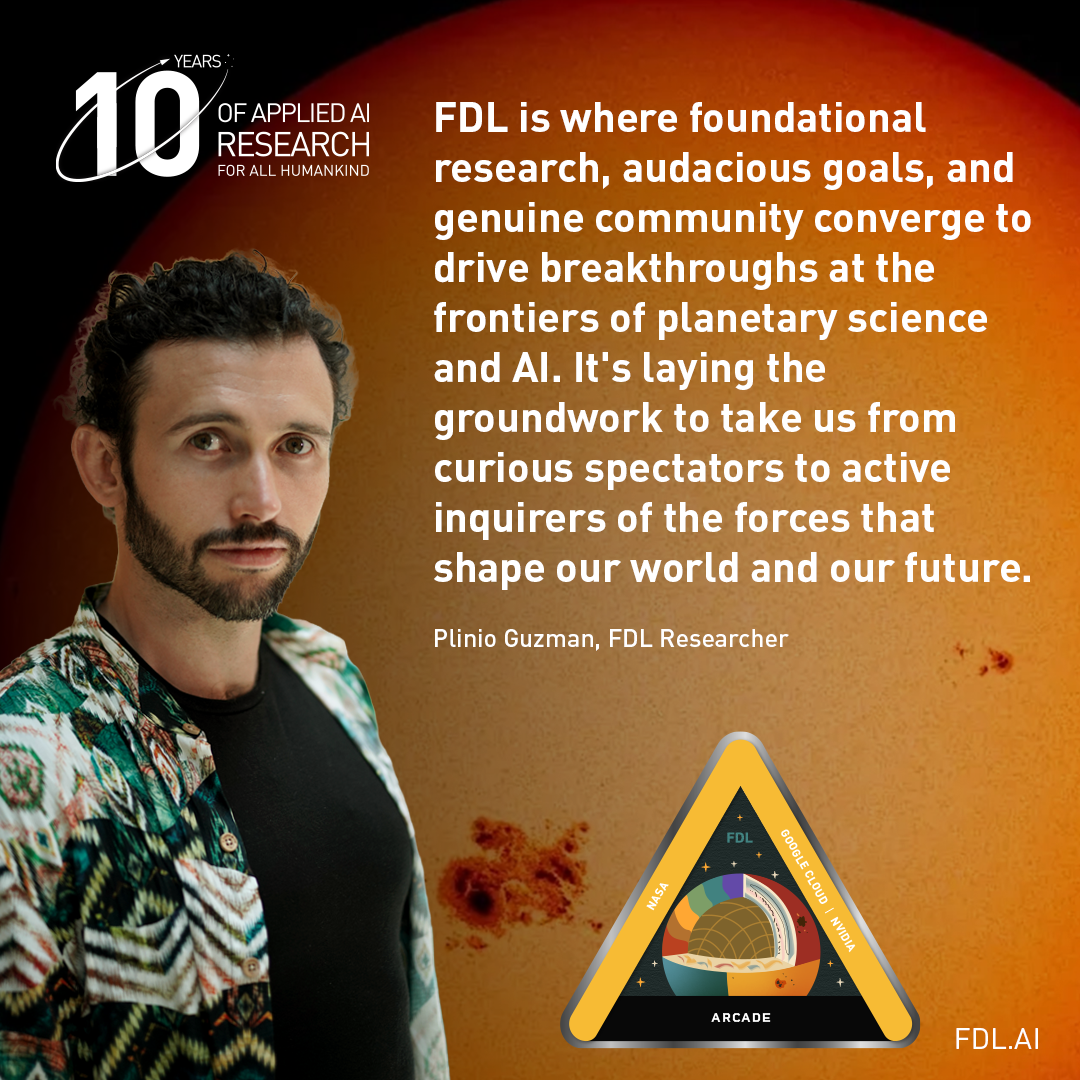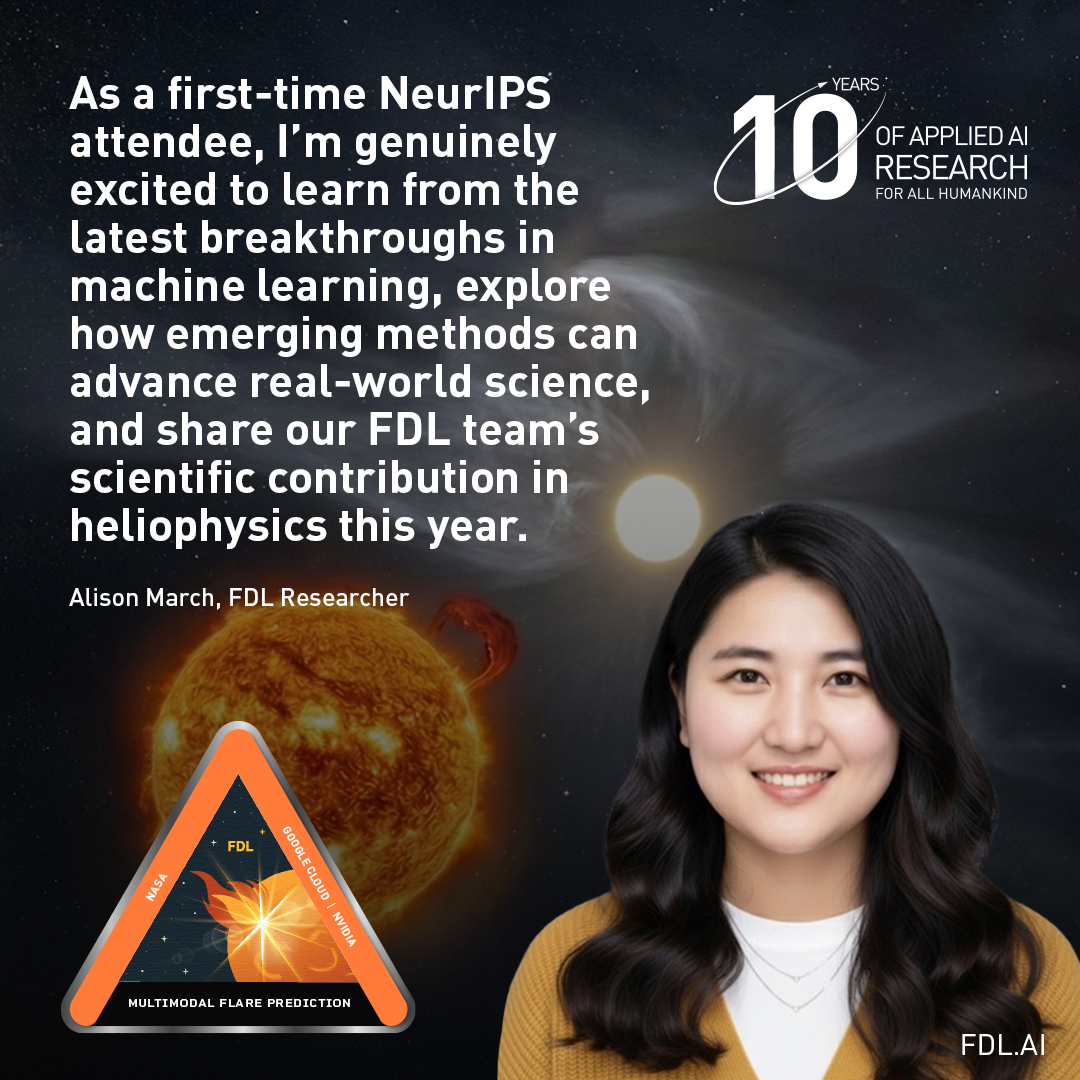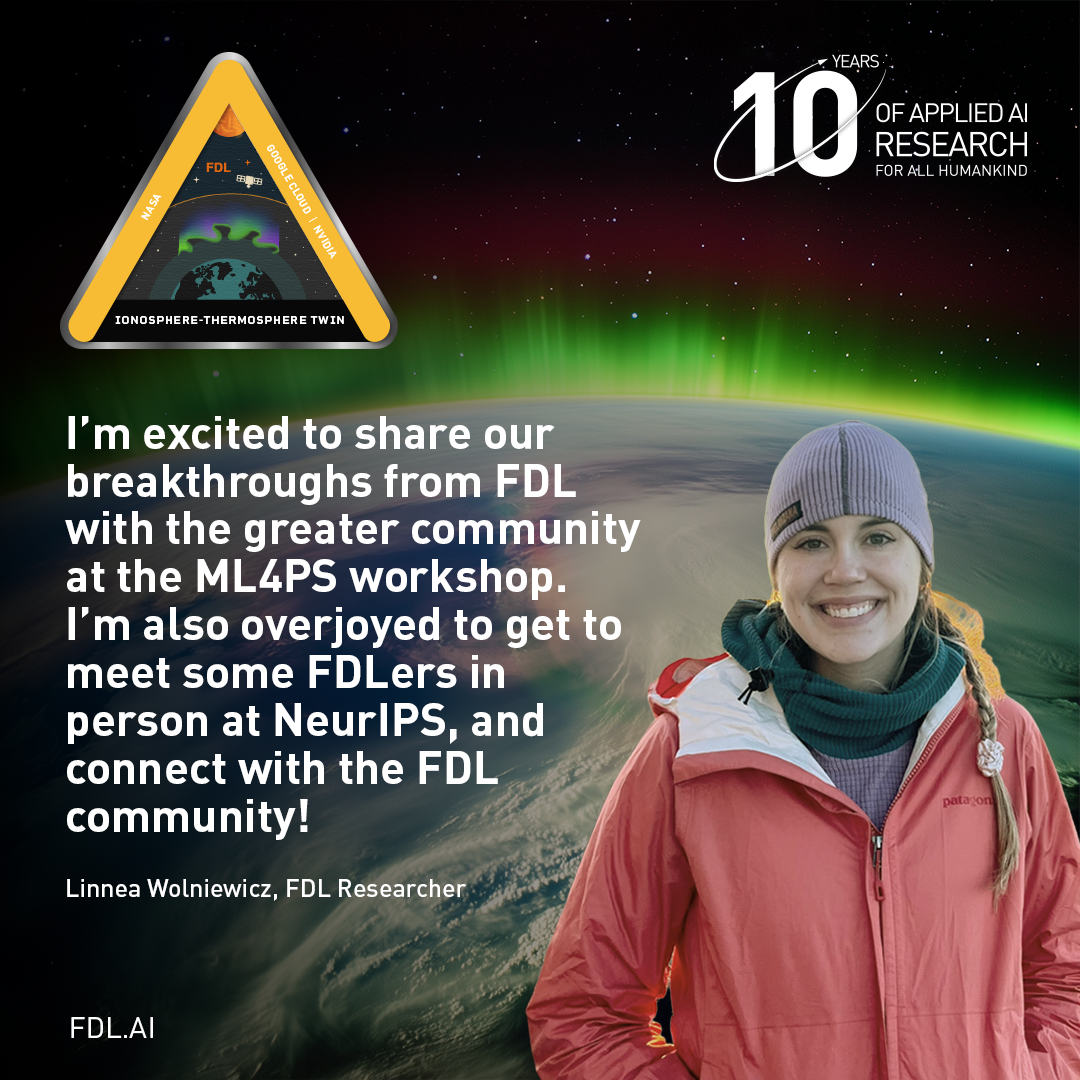
Following an incredible year of research, all our FDL 2025 teams will be presenting their work at NeurIPS this year in San Diego.
FDL's commitment to pushing the boundaries of applied AI for the good of humankind is well-documented, with previous projects earning "Best Paper" and “Overall Best Paper”‘ awards at NeurIPS previously.
At the conference, our teams will be showcasing their papers and posters at specific events, and we are especially proud that one of our teams will deliver a spotlight talk.
We invite you to attend the conference and see firsthand how FDL's research is helping to solve some of the world's most pressing challenges.
FOXES: A Framework For Operational X-ray Emission Synthesis
Poster presentation at Machine Learning and the Physical Sciences 2025
Date: Saturday, 6 December 2025 Time: 8:00 AM – 5:00 PM PST Location: Upper Level Ballroom 6CF
CIPHER: Scalable Time Series Analysis for Physical Sciences with Application to Solar Wind Phenomena
Poster presentation at Machine Learning and the Physical Sciences 2025
Date: Saturday, 6 December 2025 Time: 8:00 AM – 5:00 PM PST Location: Upper Level Ballroom 6CF
Uncovering Solar Wind Phenomena with iSAX, HDBScan, Human-in-the-loop and PSP Observations
Poster presentation at Machine Learning and the Physical Sciences 2025
Date: Saturday, 6 December 2025 Time: 8:00 AM – 5:00 PM PST Location: Upper Level Ballroom 6CF
Scalable Machine Learning Analysis of Parker Solar Probe Solar Wind Data
Poster presentation at Machine Learning and the Physical Sciences 2025
Date: Saturday, 6 December 2025 Time: 8:00 AM – 5:00 PM PST Location: Upper Level Ballroom 6CF
Reasoning With a Star: A Heliophysics Dataset and Benchmark for Agentic Scientific Reasoning
Poster presentation at Machine Learning and the Physical Sciences 2025
Date: Saturday, 6 December 2025 Time: 8:00 AM – 5:00 PM PST Location: Upper Level Ballroom 6CF
Forecasting the Ionosphere from Sparse GNSS Data with Temporal-Fusion Transformers
Poster presentation at Machine Learning and the Physical Sciences 2025
Date: Saturday, 6 December 2025 Time: 8:00 AM – 5:00 PM PST Location: Upper Level Ballroom 6CF
IonCast: a Deep Learning Framework for Forecasting Ionospheric Dynamics
Poster presentation at Machine Learning and the Physical Sciences 2025
Date: Saturday, 6 December 2025 Time: 8:00 AM – 5:00 PM PST Location: Upper Level Ballroom 6CF
Connecting the Dots: a Machine Learning Ready Dataset for Ionospheric Forecasting Models
Poster presentation at Machine Learning and the Physical Sciences 2025
Date: Saturday, 6 December 2025 Time: 8:00 AM – 5:00 PM PST Location: Upper Level Ballroom 6CF
An Agentic Orchestration System for Heliophysics Tasks
Poster presentation at AI4Science 2025
Date: Sunday, 7 December 2025 Time: 8:00 AM – 5:00 PM PST Location: Upper Level Ballroom 6CF
Data-Driven Solar Surface Flux Transport Modeling with Uncertainty Quantification
Poster presentation at AI4Science 2025
Date: Sunday, 7 December 2025 Time: 8:00 AM – 5:00 PM PST Location: Upper Level Ballroom 6CF














